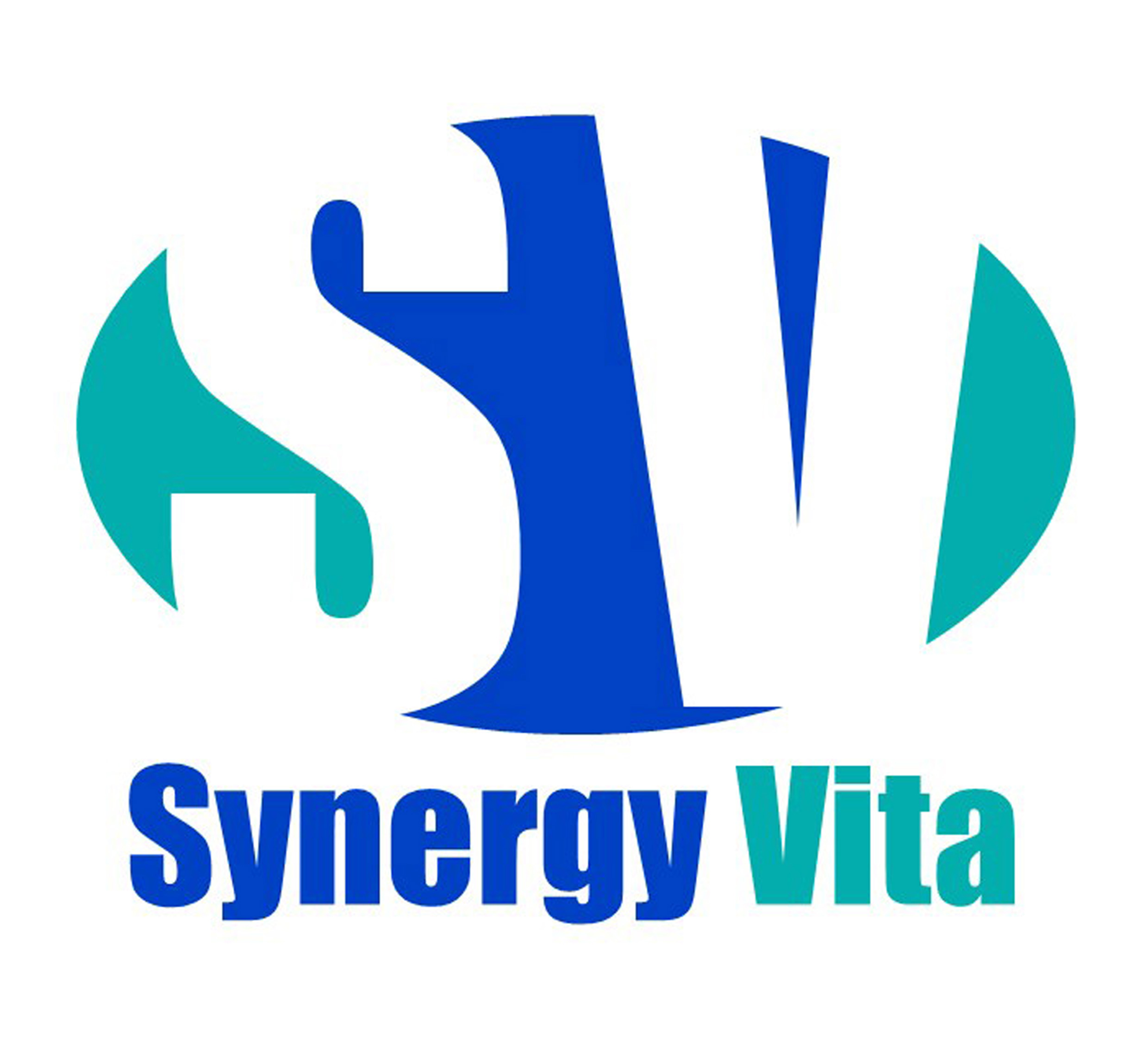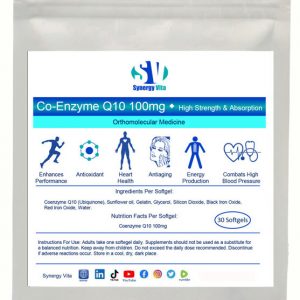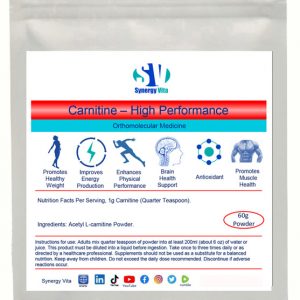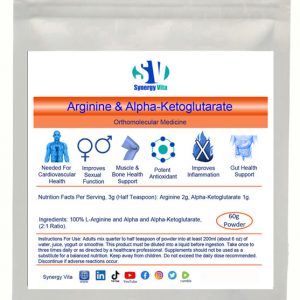Benefits of Detox and Revitalise
Helps normalise uric acid levels
Boosts energy production & vitality
Combats anxiety and depression
Helps improve lipids & cholesterol profile
Promotes heart health
Helps protect against cellular damage
Enhance cognitive function
Reduces tiredness & fatigue
Kidney health support
Improves sleep and recovery
Promotes normal cellular function
Carbohydrate balance support
Detox
Tryptophan and glycine are two important amino acids that play notable roles in physiological detoxification processes, particularly in the regulation of uric acid metabolism. Recent studies suggest that combined supplementation with tryptophan and glycine can significantly attenuate hyperuricemia by enhancing renal uric acid excretion and increasing urate clearance. Elevated serum uric acid is a hallmark of gout, a metabolic disorder characterized by the deposition of monosodium urate crystals in joints, leading to inflammation and intense pain. The mechanism through which tryptophan and glycine exert their urate-lowering effects appears to involve modulation of renal transporters responsible for urate handling, including urate anion exchanger 1 (URAT1) and organic anion transporters (OATs), which regulate the reabsorption and excretion of uric acid in the kidneys. Furthermore, glycine is known for its cell-protective and anti-inflammatory properties, which may contribute to reducing renal oxidative stress and supporting optimal excretory function. Tryptophan, aside from its role as a serotonin precursor, may also influence kidney function through its metabolites in the kynurenine pathway, which have been implicated in vascular and renal health. Together, these amino acids function synergistically to support uric acid detoxification, making them promising adjuncts in the dietary management of gout and other uric acid–related disorders.
Revitalize
Vitamin B3, also known as niacin, is a water-soluble vitamin that plays a fundamental role in cellular energy metabolism by serving as a precursor to the essential coenzymes nicotinamide adenine dinucleotide (NAD⁺) and its phosphate form, NADP⁺. These coenzymes are central to a vast array of redox reactions that occur in all living cells, acting as electron carriers in critical metabolic pathways such as glycolysis, the tricarboxylic acid (TCA) cycle, and oxidative phosphorylation. NAD⁺ primarily functions in catabolic reactions, where it facilitates the transfer of electrons to generate ATP, the body’s main energy currency. NADP⁺, on the other hand, is predominantly involved in anabolic reactions, including fatty acid and cholesterol synthesis, and is a key component of the pentose phosphate pathway, which produces NADPH—a critical reducing agent used in biosynthetic reactions and in maintaining the cellular antioxidant glutathione in its reduced form. Beyond energy metabolism, NAD⁺ also serves as a substrate for several classes of enzymes, including sirtuins and poly(ADP-ribose) polymerases (PARPs), which are involved in DNA repair, gene expression regulation, and cellular stress responses. Because of these wide-ranging roles, niacin status directly influences mitochondrial function, genomic stability, and overall metabolic health. Deficiency in vitamin B3 can lead to pellagra, a condition marked by dermatitis, diarrhea, dementia, and, if left untreated, death, highlighting its critical role in maintaining normal cellular and systemic function.
Other Benefits of Tryptophan
Tryptophan is an essential amino acid that plays a critical role in human physiology, particularly in protein synthesis and neurotransmitter production. One of tryptophan’s most significant biological functions is its role as a biochemical precursor to serotonin, a neurotransmitter that influences mood regulation, emotional stability, and gastrointestinal function. After ingestion, tryptophan is metabolized into 5-hydroxytryptophan (5-HTP) and then into serotonin through enzymatic processes involving tryptophan hydroxylase and aromatic L-amino acid decarboxylase. Elevated serotonin levels have been linked to reduced symptoms of depression and anxiety, highlighting tryptophan’s relevance to mental health. Moreover, serotonin is not the end product of this metabolic pathway—serotonin itself serves as a precursor to melatonin, a hormone synthesized primarily in the pineal gland. Melatonin plays a key role in regulating the circadian rhythm, the internal clock that governs sleep-wake cycles. In addition to its role in sleep regulation, melatonin functions as a potent antioxidant, scavenging free radicals and protecting cells from oxidative damage. Therefore, tryptophan’s impact extends beyond mood regulation and digestion to influence sleep quality and cellular health, underscoring its importance in overall well-being.
Other Benefits of Glycine
Glycine is a multifaceted amino acid with wide-ranging physiological benefits that extend well beyond its traditional role in protein synthesis. One of its notable functions is its involvement in sleep regulation. Glycine acts as an inhibitory neurotransmitter in the central nervous system, particularly in the spinal cord and brainstem, where it helps reduce core body temperature and calm neural activity—mechanisms believed to promote deeper, more restorative sleep. Clinical studies have shown that glycine supplementation before bedtime can improve subjective sleep quality and reduce fatigue the following day. In terms of metabolic health, glycine contributes to blood sugar balance by enhancing insulin sensitivity and supporting glucose clearance, especially in individuals with metabolic syndrome or type 2 diabetes. Additionally, glycine is a critical precursor in the synthesis of glutathione, a tripeptide composed of glutamine, cysteine, and glycine itself. Glutathione is considered the body’s most powerful endogenous antioxidant, protecting cells from oxidative damage, detoxifying xenobiotics, and maintaining redox balance. Glycine also plays a key role in the biosynthesis of creatine, an energy-storage molecule essential for the rapid regeneration of ATP in muscle and brain tissue. By contributing to creatine production, glycine indirectly supports muscular strength, endurance, and cognitive performance. Its antioxidant, anti-inflammatory, and cell-protective properties make glycine a crucial nutrient in maintaining overall cellular integrity and metabolic function.
Other Benefits of Vitamin B3
Vitamin B3 plays a critical role in numerous physiological systems beyond its established function in energy metabolism. One of its most well-documented therapeutic uses is in the regulation of blood lipids and cholesterol. Pharmacological doses of niacin have been shown to significantly reduce low-density lipoprotein (LDL) cholesterol and triglycerides while increasing high-density lipoprotein (HDL) cholesterol, making it a valuable adjunct in the management of dyslipidemia and the prevention of atherosclerotic cardiovascular disease. Additionally, niacin contributes to cardiovascular health by promoting vasodilation through increased prostaglandin production, which can improve blood flow and reduce blood pressure. Emerging research also indicates that vitamin B3 plays a neuroprotective role, as its metabolites (particularly NAD⁺) support neuronal energy production, DNA repair, and the activity of sirtuins—enzymes that regulate inflammation and cellular aging. These mechanisms may underlie niacin’s reported effects on mood stabilization and cognitive function, with some studies suggesting it could offer benefit in neurodegenerative conditions such as Alzheimer’s disease. Furthermore, vitamin B3 supports renal health by protecting against oxidative stress and inflammation within the kidneys, potentially slowing the progression of chronic kidney disease (CKD). Collectively, these systemic effects highlight vitamin B3’s broad therapeutic potential in supporting lipid metabolism, cardiovascular integrity, neurological resilience, and renal function.
Nutrition Facts Per Serving, 2g (Half Teaspoon): Tryptophan 975mg, Glycine 975mg, Vitamin B3 50mg.
Ingredients: L-Tryptophan Powder, Glycine Powder, Nicotinamide Powder.
Instructions for use: Adults mix half teaspoon of powder into at least 300ml (about 10 oz) of water, juice or smoothies. This product must be diluted into a liquid before ingestion. Take once or twice daily or as directed by a healthcare professional. Talk to your doctor if you have kidney problems.
BECOMING NUTRIENT DEFICIENT IS EASY AND MORE COMMON THAN YOU THINK
Suboptimal or deficiency of micronutrients is a very common problem, with adverse effects on health and wellbeing. The factor that contribute to inadequate levels of nutrients include:
- Soil impoverishment (less amount of micronutrients)
- Food processing (micronutrients are removed)
- Infection (increased need of micronutrients to combat disease)
- Reduced absorption because of gastrointestinal conditions
- Toxic substances use (they reduce bioavailability and they deplete micronutrients)
- Inflammation (elevated requirements of micronutrients)
- Injury (increased needs for micronutrients)
- Environmental toxicity (they reduce bioavailability and they deplete micronutrients)
- Age (reduced absorption of micronutrients)
- Oxidative stress (increased requirements of micronutrients)
- Alcohol consumption (increased excretion of micronutrients)
- Physical activity (increased need for micronutrients)
- Fighting disease (increased requirements of micronutrients)
- Microbiome alterations (altered absorption of micronutrients)
- Genetic polymorphism (impaired absorption and utilisation of micronutrients)
WHY CHOOSE SYNERGY VITA DETOX & REVITALISE?
This Synergy Vita supplement is made with high quality active ingredient to support beauty and health of your hair.
DECADES OF RESEARCH & EXPERIENCE
Synergy Vita products are based on scientific evidence. Our physiologist PhD, conducts extensive research to identify natural solutions for optimising physiological functions to help individuals stay fit and healthy.
Synergy Vita Products Highlights:
- Based on scientific evidence
- Carefully designed and crafted
- High strength
- Manufactured in the UK
- High standard production
- Using cutting-edge technology
- High quality & purity ingredients
- Balanced formulations
- Packaged to reduce plastic waste
- Designed to optimise nutrients intake
If optimising nutrients intake with premium quality products is important to you, you’re in the right place!





Susan Leenax –
I had high uric acid levels, and this formula helped bring them back to normal. Detoxification has become an essential part of my daily routine due to the amount of toxins we’re exposed to. Overall, a great supplement.”
Liz B. –
A powerful detox and revitaliser that helps your body remove harmful toxins. It combats depression and anxiety while boosting your vitality, helping you feel at your best throughout the day. Highly recommended!